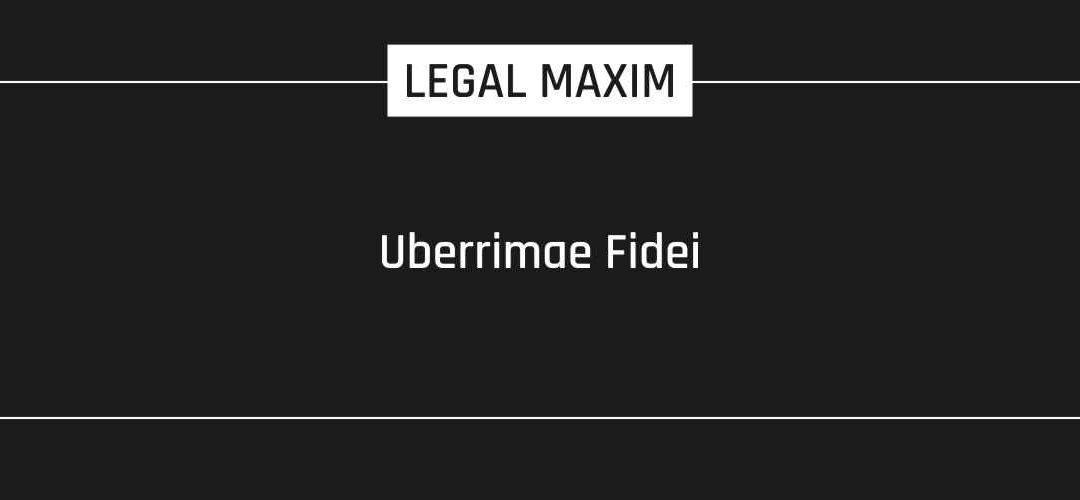Literal Meaning
Utmost good faith
Origin
Latin
Explanation
The maxim refers to a contract of legal agreement, requiring the highest standard of good faith during disclosure of all material facts that could influence the decision of the other party. A failure to adhere to uberrimae fidei is grounds for voiding the agreement. Insurance contracts are the most common type of a uberrimae fidei contract, since the parties are required to conform to a higher degree of good faith than in the general law of contract. The policy applicant must disclose all material facts and surrounding circumstances.
Insurance contracts are basically the contracts for discharging indemnification liability by an insurer for premium considered tendered by the insured to the insurer. The person getting insured must willingly disclose and surrender to the insurer his complete true information regarding the subject matter of insurance. The insurer’s liability gets void (i.e. legally revoked or canceled) if any facts, about the subject matter of insurance is either omitted, hidden, falsified, distorted or presented in a wrong manner by the insured.
Case Laws
The Supreme Court in Satwant Kaur Sandhu vs New India Assurance Company Ltd held that “There is a dispute that Section 45 places restrictions on the right of an insurer to call in question a life Insurance policy on the ground of misstatement and suppression of material facts. It will not be applicable in the following case because this provision applies only to life insurance policies and not to the Mediclaim policy. A Mediclaim policy is a non-life insurance policy. Nonetheless, it is a contract of insurance falling under the uberrimae fidei meaning a contract of utmost good faith on part of the assured. Thus, it needs emphasis that when information is asked for in a proposal form, and assured in under solemn obligation to make true and full disclosure of the information on the subject which is within his knowledge. Of course, the obligation to disclose extends only to the facts that are known to the applicant and not to what he ought to have known.”
In LIC v. G.M.Channabsemma, the Supreme Court held that “An insurance contract is a species of commercial transactions and must be construed like any other contract to its own terms by itself. In a contract of insurance, there is a requirement of uberrima fides i.e., good faith on the part of the insured. Except that, in other respects, there is no difference between a contract of insurance any other contract.”
In Anuradha Anand Naik, vs Life Insurance Corporation of India, the Supreme Court held that “A contract of insurance is based on the principle of uberrimae fidei utmost good faith applicable to both parties. The rule of non-disclosure of material facts vitiating a policy still holds the field. A contract of revival has also got to be uberrimae fidei and the same principle needs to be applied to a contract of revival, as can be seen from various decided cases. In the case at hand, it was stipulated in the revival Form itself that any false information in the revival form would make it void and that is exactly what the Opposite Party has done.
